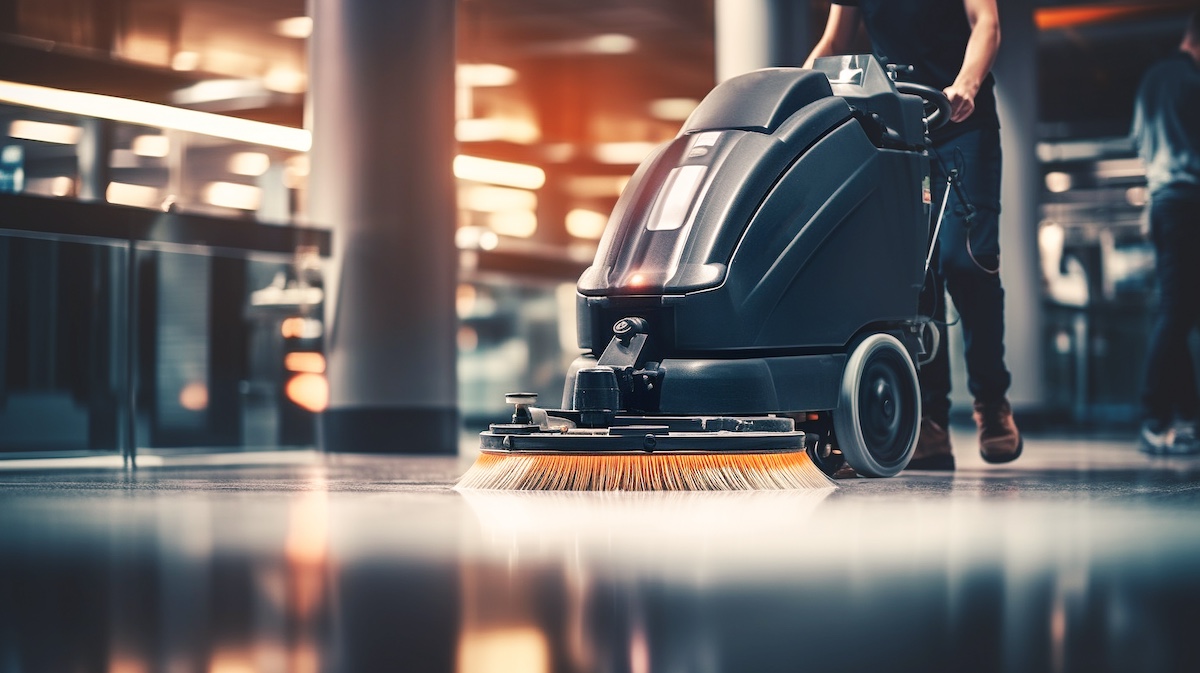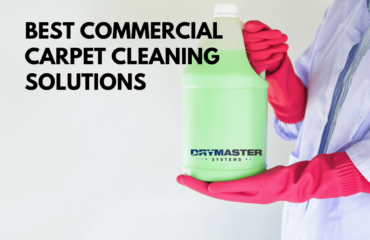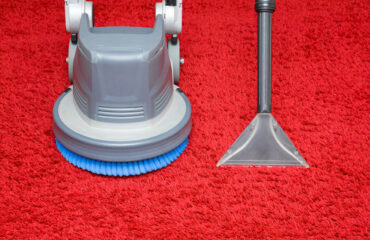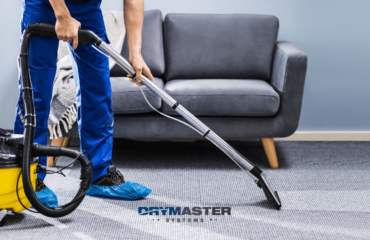Maintaining cleanliness in carpets and floors is vital for a healthier indoor environment. These areas can become breeding grounds for allergens, dust, bacteria, mold, and viruses, which pose risks to health. Regular professional cleaning of carpets and floors can remove these contaminants, ensuring a more hygienic space.
Running a cleaning business requires the right tools to offer superior carpet and floor cleaning services. This not only boosts customer satisfaction but also helps in building loyalty and growing your business. Understanding the key differences between carpet cleaners and hard floor steam cleaners can help you pick the right equipment for your needs.
All About Carpet Cleaning Machines
Carpet cleaning machines are designed to tackle dirt, stains, and allergens in carpets and rugs, making them indispensable for both professional cleaners and homeowners aiming to maintain their carpets’ appearance and promote a hygienic, healthy living space.
There are several different types of carpet cleaning machines available including:
- Portable Extractors. Portable extractors are compact and easily portable, ideal for maneuvering in tight spaces or within residential homes. They operate by injecting water and cleaning solution into the carpet, then vacuuming it back up, dirt and all.
- Truck Mounts. Truck mount systems, known for their power, are often the go-to for big commercial cleaning tasks. Installed in vans or trucks, they come with long hoses that easily reach into buildings. Their strong suction and high efficiency make them perfect for thorough cleanings and quick work of large spaces.
- Encapsulation Machines. These are used for low-moisture cleaning. They apply a cleaning solution that crystallizes into a powder as it dries. The encapsulated dirt is then vacuumed up, leaving the carpet clean and dry much quicker than traditional methods.
- Dry Carpet Cleaners. Low-moisture machines are ideal for settings where carpets need to dry quickly, such as bustling offices or hotels. They work by distributing a dry compound over the carpet, which is then brushed deep into the fibers and subsequently vacuumed up, ensuring minimal dampness.
A Closer Look at Floor Cleaners
Floor cleaning machines are essential for keeping different types of flooring, including tile, hardwood, and linoleum, clean and well-maintained. Common in commercial environments like schools, hospitals, and retail areas, they’re also useful for homeowners tackling larger cleaning projects. Primarily used to eliminate dirt, grime, and stains, many models also use steam to sanitize hard floors, providing an extra level of cleanliness.
Some of the different types of floor cleaning machines include:
- Scrubbers. These are powerful machines used for deep cleaning floors. They work by dispensing a cleaning solution onto the floor, scrubbing it with rotating brushes or pads, and then vacuuming up the solution along with any loosened dirt. They’re ideal for large, hard-surface areas like grocery stores or hospital hallways.
- Buffers. Also known as floor polishers or burnishers, buffers are used to polish and maintain the shine on hard floors. They have high-speed rotating pads that buff the floor surface, giving it a glossy finish. They’re commonly used in commercial settings where clients prefer a shiny floor appearance, such as malls, office buildings, and schools.
- Steam Mops. Steam mops, often favored for residential use, heat water to produce steam, which is then released onto the floor. The steam loosens dirt and grime, allowing the mop pad to easily wipe it clean. Ideal for sealed hard floors, they offer a chemical-free cleaning solution, aligning well with eco-friendly cleaning practices preferred by many companies.
Key Differences Between Carpet Cleaners and Steam Cleaners
Starting a professional cleaning business or looking to upgrade your equipment? Knowing the differences between various floor cleaning machines is crucial to selecting the right tools for your tasks. The following table outlines the key differences between carpet cleaners and steam cleaner features.
| Feature | Carpet Cleaners | Steam Floor Cleaners |
| Primary Use | Cleaning and removing stains from carpets. | Cleaning and sanitizing hard floor surfaces. |
| Cleaning Method | Use of water, cleaning solutions, and suction. | Use of hot steam to loosen and remove dirt. |
| Surface Suitability | Specifically designed for carpets and rugs. | Suitable for hard surfaces like tile, hardwood, etc. |
| Water Temperature | Often use warm or hot water mixed with solutions. | Use extremely hot steam. |
| Chemical Use | Typically require cleaning solutions. | Mostly use steam, reducing the need for chemicals. |
| Drying Time | Longer drying time due to water use. | Shorter drying times as steam evaporates quickly. |
| Deep Cleaning | Effective in deep cleaning and removing embedded dirt. | Primarily for surface cleaning and sanitization. |
| Portability | Varies from portable models to larger, heavier units. | Generally more portable and easier to maneuver. |
| Maintenance | Requires regular cleaning of tanks and filters. | Usually lower maintenance, but descaling may be needed. |
| Cost | Varies, often more expensive due to size and features. | Generally less expensive than carpet cleaners. |
Factors to Consider When Choosing a Floor Cleaner for a Professional Cleaning Business
Choosing the right floor cleaner for your professional cleaning business is a crucial investment in your company’s future. The specific cleaner you select can influence the efficiency, quality, and breadth of the services you provide.
Your Business Needs
Choosing the ideal floor cleaner for your business depends on the services you offer. For those specializing in carpet cleaning, machines with adjustable settings to accommodate different types of carpets and fibers are essential. If your focus is on hard floors, look for scrubbers, buffers, and polishers designed for use on tile, hardwood, or linoleum. Businesses that handle a mix of both might need versatile equipment or specialized machines tailored to their most common tasks.
You also need to think about your regular clients and your target demographic. Large commercial spaces require durable, industrial-grade machines with large water tanks and long battery life or strong power sources, while smaller residential jobs benefit from compact, easy-to-maneuver models. Additionally, if you have a busy cleaning schedule, you’ll need equipment that is not only powerful but also easy to maintain.
Investment in Quality Equipment
Investing in premium floor cleaning equipment can improve your business’s operational efficiency and client satisfaction. Top-of-the-line machines typically offer advanced features like adjustable pressure settings, multi-surface capabilities, and eco-friendly options, leading to more effective cleaning and energy savings.
High-quality machines are built to last, offering years of reliable service along with comprehensive warranties or service plans. This means you’ll face fewer repair expenses and less downtime, and you can provide consistent, high-quality service to your clients.
Find the Right Equipment With DryMaster Systems
Purchasing premium cleaning equipment from DryMaster Systems provides you with the opportunity to take your business to the next level. Joining as an affiliate with DryMaster Systems opens up access to a wide selection of superior carpet and floor cleaning machines and solutions designed to tackle any cleaning task, whether it’s for homes or commercial spaces.
We also offer comprehensive training and marketing materials to make sure you’re fully prepared to expand your business and unlock your full potential in the cleaning sector. Don’t let this opportunity to join a community committed to quality and excellence pass you by. Become a part of the DryMaster Systems family today and start enjoying the benefits of our knowledge and support.
Contact us to learn more about our affiliate program and take the first step toward transforming your cleaning business.




